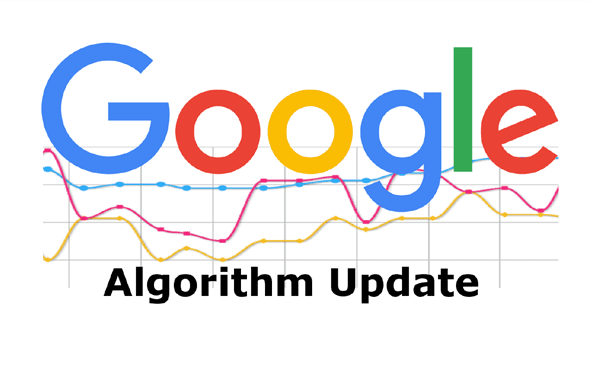Numerous industries from tech to recipes, health and finance, have been rocked by Google’s latest May 2020 Update which has rolled out in the midst of the Coronavirus Pandemic. Google announced the update on May 4 and called it the ” May 2020 Core Update”. The rollout of the algorithm will continue for up to two weeks from the release date when all changes will be live.
We are currently seeing search engine results continuing to churn days later. Many websites are noticing significant traffic losses.
Most updates settle relatively quickly with small modifications to results along the way. The May 2020 Algorithm updates appears a little different that those that came before it and it is becoming apparent that this update may be a big one.
Searchmetrics provides further reports from webmasters and SEOs on the ranking changes:
- Health: “We lost in May 2018, we lost in August 2018 (Med). But this update is the worst update (for us) I ever saw in my years of SEO. We lost everything again. At this moment we got hit harder then 2018.” Sofie77 via WebmasterWorld Forum
- Tech: “It’s getting rough…. – 40% Traffic compared with last week. Tech related website.” ChokenBako via WebmasterWorld Forum
- Finance & Health: “Okay, now I am seeing crazy swings. Monitoring KWs in various verticals, and so far, the volatility appears massive. Some major national brands that were rank at the top for very competitive financial KWs dropped 10+ rankings. Seeing massive swings in health as well. This looks big so far.” HereWeGo123 via WebmasterWorld Forum
- Dating: “Over 40% down so far for a relationship advice site.” Dantes100 via WebmasterWorld Forum
The changes are felt by many and the results apparently are fluctuating hour-to-hour and day by day. I haven’t witnessed an update as widespread as this one since Google’s first major algorithm update, Florida, in 2003.
Why Updates Cause Ranking Volatility
Due to the fact that it may take some time to roll out the changes to all the information centres worldwide, one of the reasons the search results ended up being unpredictable is: when your web browser displays a data source it might be receiving old information or the brand-new data.
Another reason to discuss the continuous changes is that there are multiple elements that are changing. Are people’s behaviour changing due to Covid? Is the web in general changing? of is Google changing something?
What commonly happens is an update present followed by a duration of relative calm that is then disrupted by more changes that in some cases reverses the losses. This updates has seen 16 days straight of ranking volatility, which hasn’t happened in recent years.
Google has different algorithms for every industry, and seeing changes across industries indicates a major update.
As I comprehend it this referred to as reversing incorrect positives. Incorrect positives are when relevant websites are inadvertently impacted by an update. After an update, the Google engineers will measure the feedback, review the search results page and modify it to ravel the false positives.
First Impressions
Many individuals I spoke with explained this update using words like “carnage” and mentioned how troublesome it was to do this to companies at such an alarming minute in time.
One Search marketer provided this impression: ” This appears to be among the most substantial updates in current memory. It’s prematurely for anything besides analysis, but I’ve seen sites in numerous verticals affected.
It’s not clear who the winners are yet …”.
Several individuals shared that while it is yet early, they are seeing changes throughout numerous industries, significantly in the health-related subjects.
Local Search Fluctuations.
There are many reports that reference fluctuations in local type search results page. One individual tweeted a graphic that reveals local search has been increasing since late April 2020.
Covid-19 Effect on Search Algorithm?
Some thinking that sounds plausible is that Covid-19 may have impacted some parts of Google’s algorithm that determines what it is that individuals want to see when they make a search question, especially covid related.
Without question, the pandemic affected search patterns.
Is it possible that Google added a change that makes Google’s algorithm more conscious about these changes? We actually don’t know.
Another aspect I’ve seen is that some are reporting that websites with stable brand names have actually gained increased rankings, while less top quality sites have actually lost.
Worldwide Update Rollout.
Google’s update appears to be impacting SERPs worldwide. Reports on WebmasterWorld indicate volatility from the United States to Europe to Australia all at once.
Japanese search engine marketer Kenichi Suzuki (@suzukik) told me that the update is being acutely felt in Japan.
This is what Kenichi said:
” We’re seeing a big change. … The May 2020 Core Update appears a normal core update.”.
Thin Content Losing?
Another point is that there are multiple reports of thin content losing positions. Because of their thin material or for other factors has actually not been determined, whether they are losing positions.
What Do Updates Target?
It’s crucial to understand that Google broad core updates do not generally target a particular industry. A change in the algorithm might have a strong result on an industry, however that does not imply the industry was specifically targeted.
Google has an established recent history of presenting broad core updates that impact factors like understanding user search intent and for comprehending what web pages have to do with and how those pages pertain to search questions.
A change to much better understanding search intent can impact how Google ranks medical-related sites are ranked.
If Google figures out that searchers want scientific responses for health inquiries then that’s going to negatively affect sites with so-called “natural” treatments.
If medical-related sites appear to be disproportionately impacted, that might be the impact of a modification in understanding search intent.
Link associated elements have likewise belonged to recent Google algorithm updates, like when Google decided to selectively use some no-follow links for ranking purposes.
What Do Algorithm Updates Reward?
Google does not actually reward websites for any specific quality. Google ranks sites for how appropriate they are to a search question.
Google likewise uses the link signal to determine the appeal of a website and what it is pertinent for.
Do Algorithm Updates Focus on Quality?
Google constantly aspires to not rank low-grade websites. What matters most is whether a web page pleases a user when they make any specific search query.
Due to the fact that it’s on a premium site, Google doesn’t rank a web page. Because it is pertinent, it ranks a web page.
Key Takeaways from 2020 Google Algorithm Update
It’s essential to wait until the search results page calm down before making any changes. Those who have seen ranking losses haven’t violated Google Webmaster Guidelines. The updates are intended to improve the overall quality of search results.
The best way to rank highliy is to “focus on delivering the best possible content” and confirming your website offers:
- original and valuable content. Meta titles and descriptions are appealing and match the content.
- Expertise. is your content trustworthy?
- Presentation and Production: does content look well researched?
- competitive comparison: does your site offer added value compared to other competitors?







